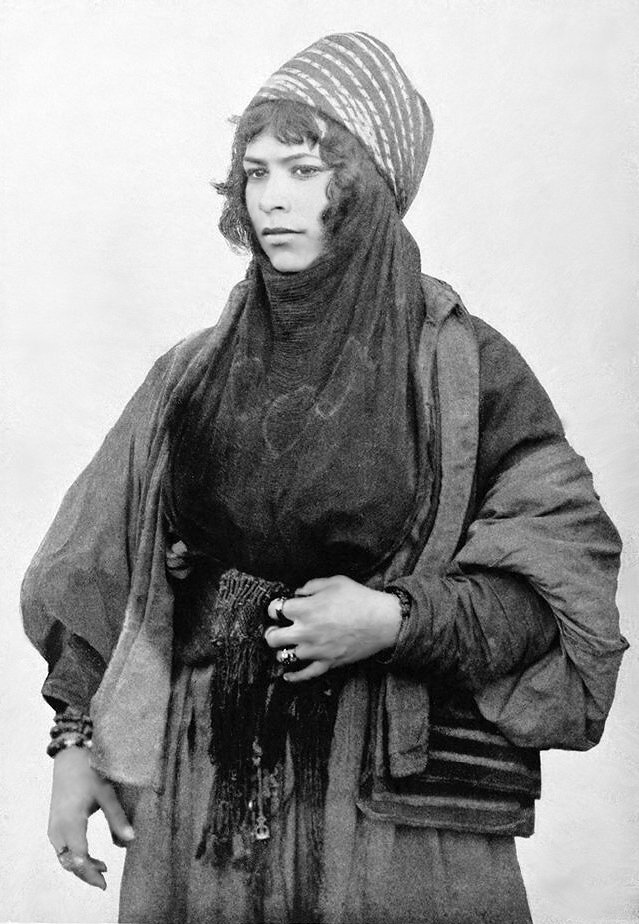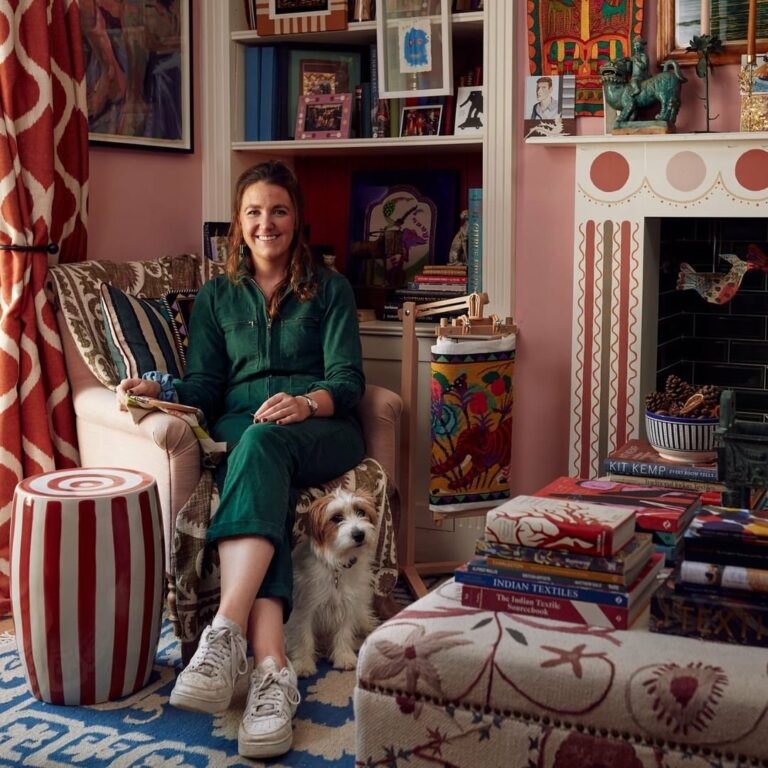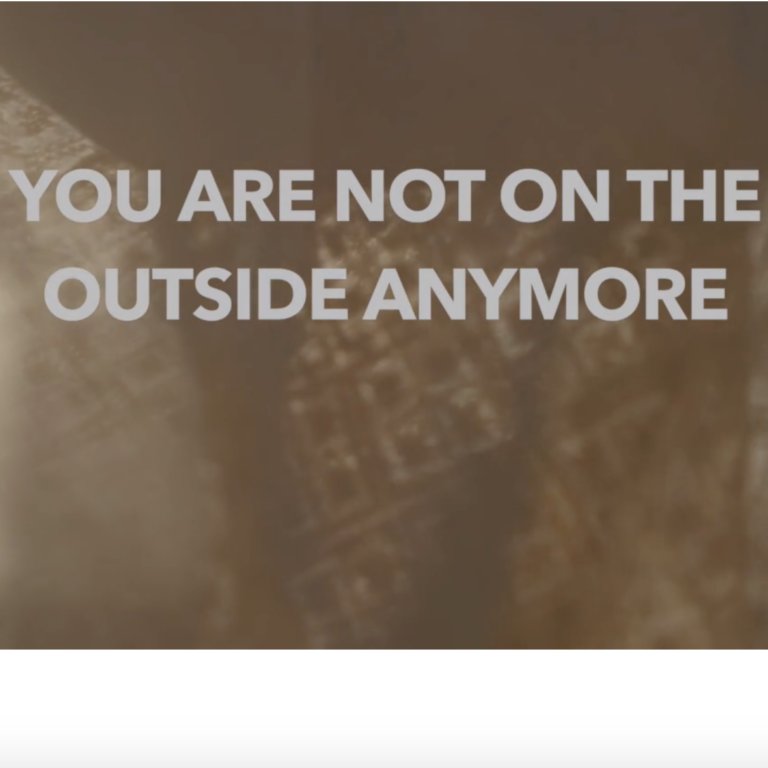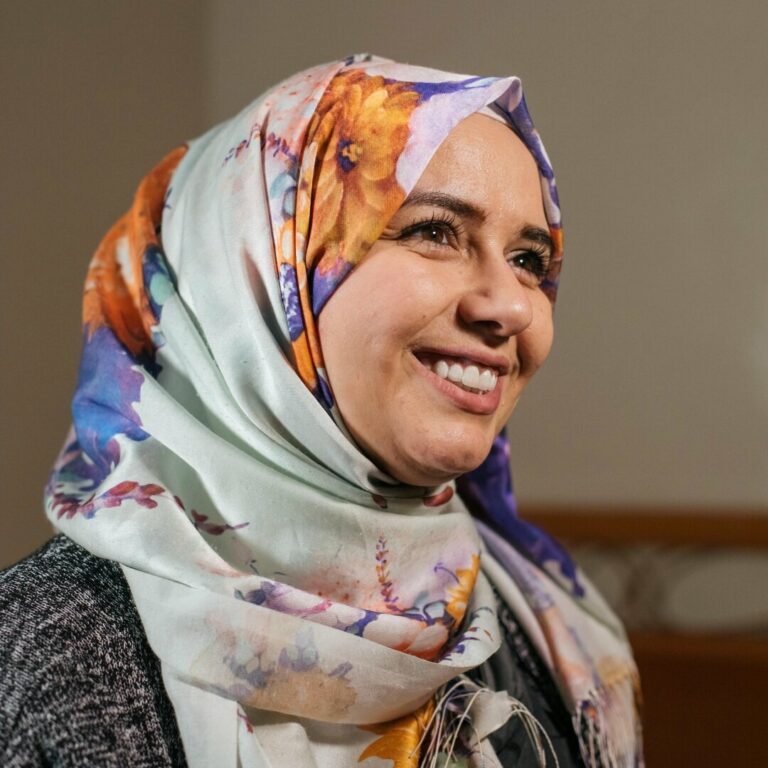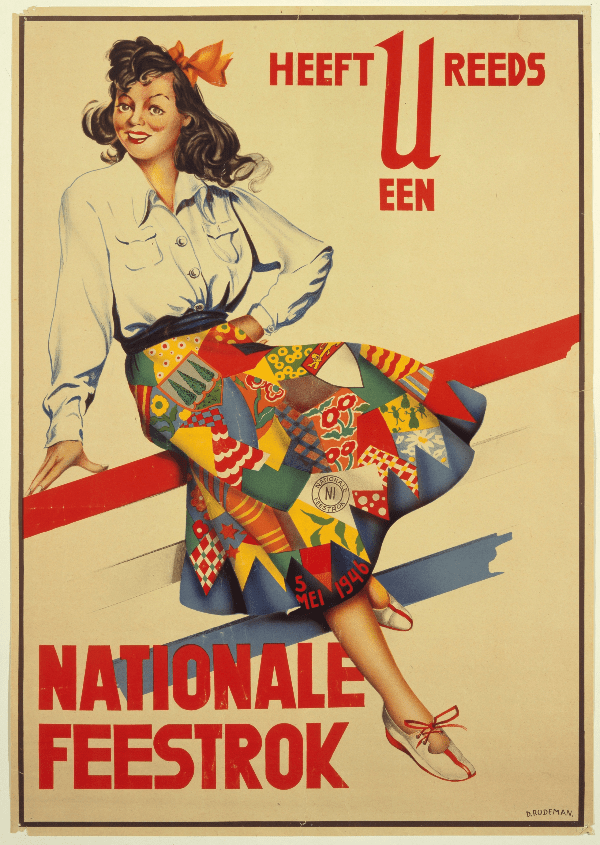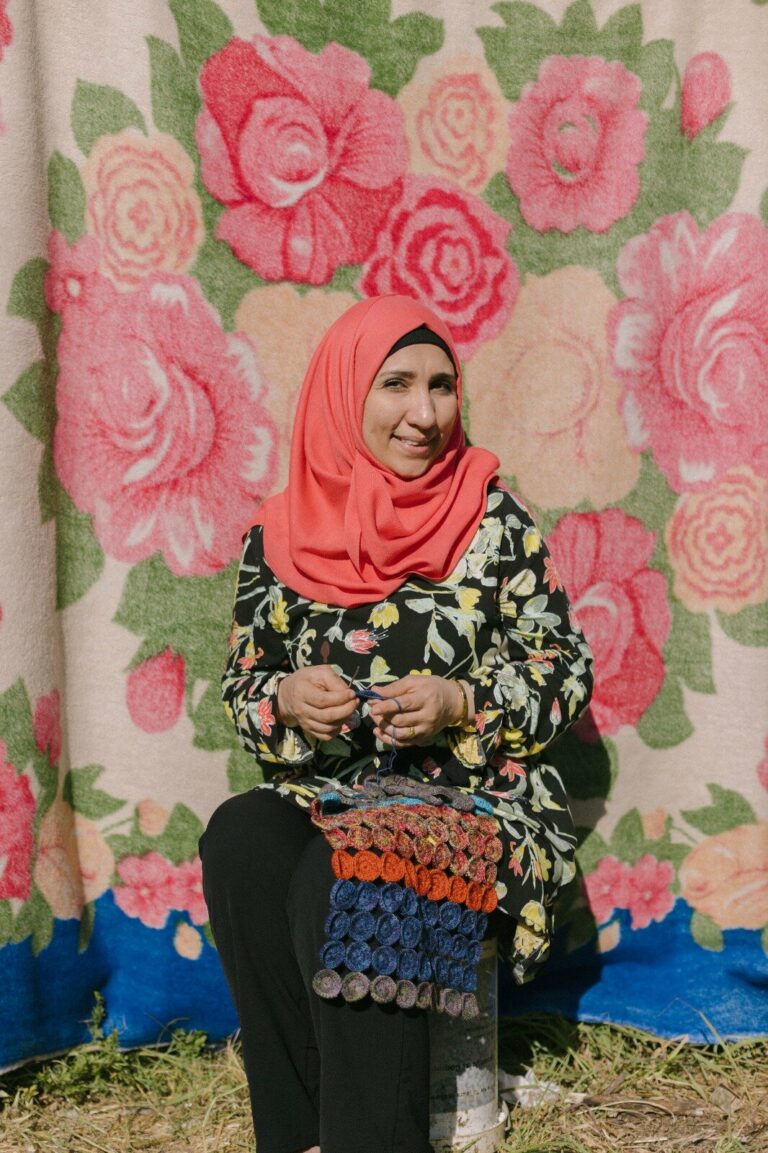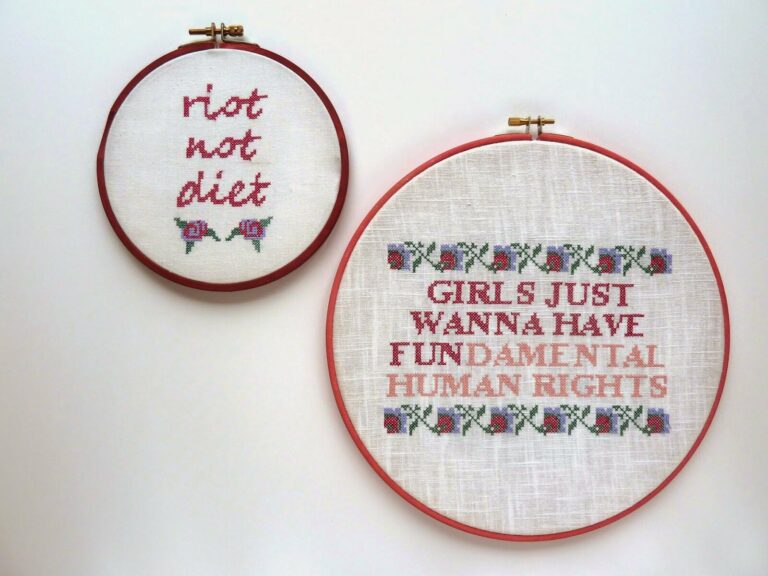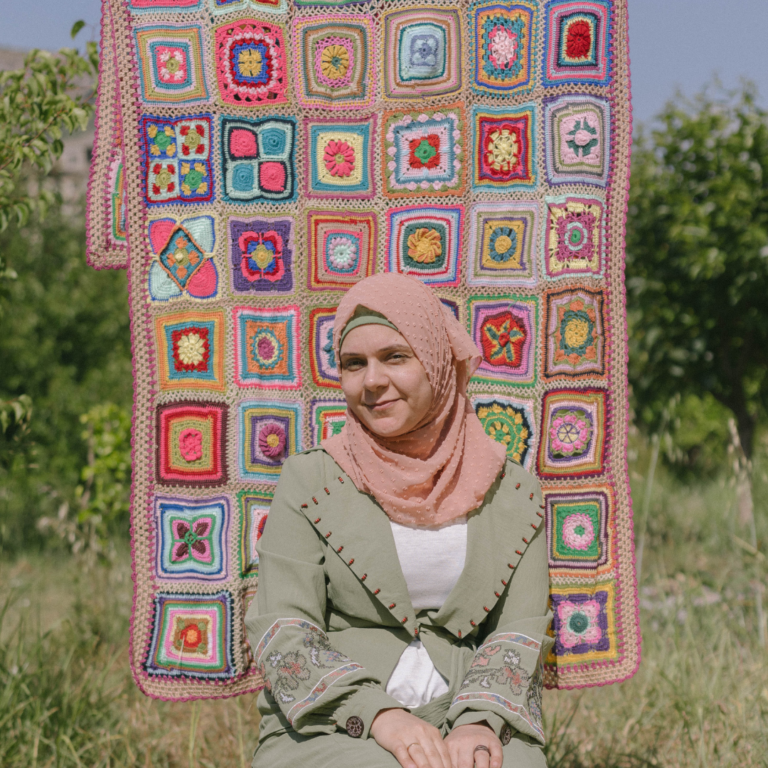My Voice in a Quilt
A collective exhibition of textile artworks handcrafted by newcomer Syrian women in Toronto. Each quilt piece tells a story woven with emotion, memory, and hope.Together, they create a shared tapestry of resilience, connection, and beauty. This exhibition presents a collective artwork of quilts created by newcomer Syrian women in Toronto. Each quilt is composed of…
Syria’s Bedouin – a culture under threat
The Bedouin are, historically, the Middle East’s nomadic sheep, goat and camel herders; their name means literally ‘desert dweller’ in Arabic. They are found from the Gulf to north Africa, but here of course we want to focus on the Syrian Bedouin, and especially their amazing embroidery and craft.
A Marvellous Maker: The Sisterhood of the Stitch Meets Eppie Thompson
To celebrate the launch of our recent collaboration with embroidery kit start-up The Fabled Thread, we sat down with creative maverick and founder Eppie Thompson to talk all things embroidery.
Fatima’s story
Hear from Fatima, who is internally displaced within Syria, and has been working with Sabbara for over eight years.
The Quilt Makers of Changi Prison Camp
How women interred by the Japanese in WWII used quilt making to send coded messages to their loved ones, and to create freedom and beauty in the midst of suffering.
Mona
“My husband keeps saying that I am the master of the house now. He tells the kids that they need to ask me for something, as I am the breadwinner. With the money I earn, I pay for the rent and the children’s schooling.”
Needlework, Love and Liberation
The incredible story of Mies Blossevain-van Lennep; Dutch Nazi Resistance fighter, concentration camp survivor, needlework activist. In this second part of the Sisterhood of the Stitch blog, we explore the power of embroidery to unite those facing the most challenging of circumstances.
Faten
“My family are Palestinian refugees from Syria, and it is forbidden for us to work in Lebanon. So I began knitting, and I really loved the work..”
The Sisterhood Of The Stitch, an Introduction.
Embroidery: tool of oppression or instrument of liberation? Introducing Sabbara’s new blog series: The Sisterhood Of The Stitch. This series will explore the incredible power of embroidery as demonstrated by the talents and bravery of an array of amazing women throughout the ages.
Juhayna
“My work means a lot to me because it was a kind of transformation in my life,” says Juyahna, one of our refugee artisans in Lebanon.

